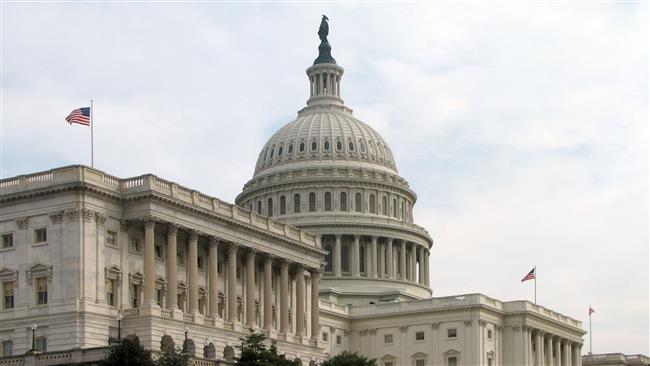US Senate votes to overturn online privacy laws
The US Senate has quietly voted to overturn Obama-era laws aimed at protecting online privacy and preventing Internet providers from selling user data without consent.
The Republican-led chamber voted 50 to 48 to reverse the privacy rules passed under the US Freedom Act in a quiet session on Thursday. The measure is expected to be passed by the House of Representatives, which also has a Republican majority, before being signed by President Donald Trump.
Under the rules set by the Federal Communications Commission (FFC) last October, service providers were required to ask for customers’ permission to collect their personal information.
Republicans claim the FCC’s rules confuse customers because they only cover Internet providers and not companies like Google and Facebook.
Earlier this month, two dozen Republican senators filed a joint resolution to cancel the new privacy rules imposed on Internet service providers and to prevent the FCC from taking similar action in the future.

“The privacy ruling was unnecessary, confusing and adds yet another innovation-stifling regulation to the Internet,” Arizona Republican Sen. Jeff Flake said.
Violation of online privacy especially by the CIA and the NSA (National Security Agency) has been the subject of lingering debate in the US as the two spy agencies have already been accused of using social networking sites to gather personal information of people worldwide including of American citizens.
If the privacy laws are finally overturned, there would be little to stop the providers from selling online data to any agencies such as the CIA and the NSA.
Privacy campaigners say repealing the existing laws without a new legislative framework in place could create an enforcement vacuum.
Without those protections, consumer advocates also fear that broadband providers will be able to do what they wish with people's data.
"Advertisers and marketers are lining up to get access to all the information that's now available about us," said Jeff Chester of the Center for Digital Democracy, which advocates for tougher Internet privacy measures.
The telecommunications industry also largely opposed the new rules because they give an unfair advantage to Internet giants such as Google and Facebook. Although those companies make billions selling browsing data by default, they would not be governed by the new rules.
VIDEO | Yemeni forces repel US-British attack, down F-18 Jet
Iran’s capabilities vast; enemy’s ‘maximum pressure’ policies all failed miserably: Senior official
Iran’s economy grew 2.7% y/y in Sep quarter: CBI
VIDEO | Freelancers in Gaza strive to stay online amid genocide
Mikati demands Israel's withdrawal from south Lebanon
Yemeni army strikes Israeli military sites with drones
‘Clock ticking’: UNRWA slams unjustifiable killing of children in Gaza
BP to be sued in Britain for supplying oil to Israel










 This makes it easy to access the Press TV website
This makes it easy to access the Press TV website